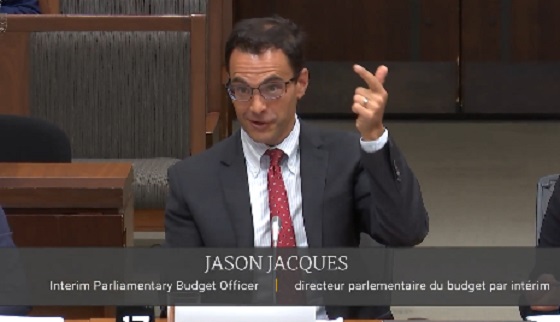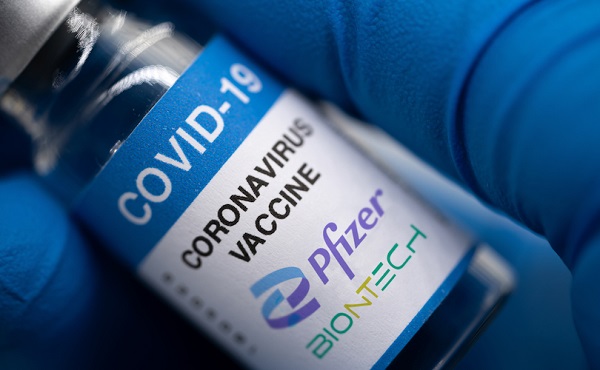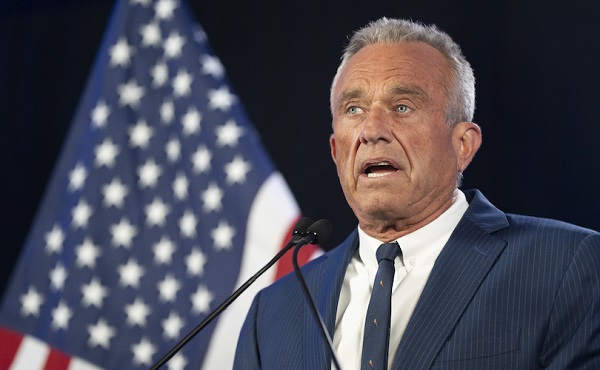From The Center Square
President Donald Trump is moving quickly against an organization that he blames for destruction, looting and protests, another indication the president is acting faster during his second term.
Trump has long wanted to take action against the decentralized, leaderless collection of groups, networks and people who claim to be anti-fadcist. But it didn’t get done during his first term in office.
Trump proposed taking action against Antifa amid violence in Portland in 2019. During the George Floyd protests in May 2020, Trump made a similar announcement, but nothing followed.
“Major consideration is being given to naming ANTIFA an ‘ORGANIZATION OF TERROR,'” Trump wrote in a social media post in August 2019. “Portland is being watched very closely.”
This week, months into a fast-paced second term, Trump formally designated the organization after The Center Square asked him about it in an Oval Office news conference and said he could take it further with an international designation.
Trump’s second-term move came after a spate of political violence in the U.S., including the assassination of conservative activist Charlie Kirk.
“I am pleased to inform our many U.S.A. Patriots that I am designating ANTIFA, A SICK, DANGEROUS, RADICAL LEFT DISASTER, AS A MAJOR TERRORIST ORGANIZATION,” Trump posted on Monday. “I will also be strongly recommending that those funding ANTIFA be thoroughly investigated in accordance with the highest legal standards and practices.”
Trump designated Mexican drug cartels and violent foreign gangs as a foreign terror organization early in his second term. He has used those designations to go after drug traffickers and Tren de Aragua, among other cartels.
A foreign terror organization designation would pressure other countries to do the same. According to the U.S. Department of State, a foreign terror organization designation for Antifa would isolate the organization internationally and “deter donations or contributions to and economic transactions with named organizations.”
Some have been critical of the designation.
A Cato scholar said Trump’s move to designate Antifa a domestic terror organization was misguided.
“George Orwell, one of the most well-known anti-fascists of the last century, is undoubtedly rolling over in his grave right now,” Patrick Eddington, a senior fellow in homeland security and civil liberties at the Cato Institute, wrote.
Eddington said, legal or not, Trump has shown he’s ready to take action.
“What matters is that the administration asserts the authority to do this, and it has thousands of armed and armored federal law enforcement agents ready and able to carry out Trump’s orders,” he wrote.
The White House cited “coordinated efforts” to “obstruct” federal law enforcement, specifically immigration enforcement operations through “organized riots” and “violent assaults,” including doxing.
The White House said the designation will allow law enforcement to use federal resources to investigate and “dismantle” the group or anyone “claiming to act on behalf” of the group. In addition, it will allow the federal government to investigate and prosecute those responsible for funding Antifa.
U.S. Rep. Bennie Thompson, D-Mississippi, the ranking member of the Committee on Homeland Security, said Trump is using the designation to target left-leaning groups he doesn’t like.
“Designating Antifa – which has no defined organizational structure or leadership – as a domestic terrorism organization is not only incorrect, it serves no purpose other than an excuse for the Trump administration to stifle dissent, investigate anyone – or any group – they don’t like, punish their enemies, and potentially label any American they want as a terrorist,” he said in a statement. “Never in our history has the U.S. government named a domestic terrorist organization.”
Thompson said domestic terrorism has been on the rise, but blamed right-wing groups for that violence, not left-wing groups.
“Domestic terrorism has been on the rise for years, but government officials from both Republican and Democratic administrations – along with all available data – are clear: the real threat is from right-wing violent extremism,” Thompson said. “Sadly, the Trump administration ignored this threat in its first term and has so far this year as it has diverted vast resources and personnel away from countering this very real threat towards its extreme mass deportation agenda.”
The Center Square contacted Thompson’s team for an interview and additional comment. A spokesperson referred The Center Square back to Thompson’s statement.
A June 2020 report from the Congressional Research Service noted that Antifa groups can differ widely.
“Contemporary U.S. antifa adherents likely do not share a list of enemies, as the movement lacks a unifying organizational structure or detailed ideology that might shape such a list,” the report noted. “Local groups do not necessarily listen to each other’s pronouncements and might aim their animus at enemies specific to their group. Further, ‘fascism’ is notoriously difficult to define. Thus, particular antifa groups may oppose different things based on how they identify who or what is fascist.”
That same report said not all antifa members were violent.
“Some members are willing to commit crimes, some violent, to promote their beliefs, although much antifa activity involves nonviolent protest such as hanging posters, delivering speeches, and marching,” according to the report. “As a core purpose, antifa groups track and react to the activities of individuals or groups they see as advocating fascist views, such as neoNazis, racist skinheads, white supremacists, and white nationalists.”
However, Antifa has not been afraid to use violence.
“Violence by U.S. antifa members is not new. For example, in 2012 Anti-Racist Action (ARA; an antiracist group now known as The Torch Network or Torch Antifa) attacked a meeting of the Illinois European Heritage Association, consisting of white supremacists from the National Socialist Movement and people from other groups. Brandishing items such as hammers, baseball bats, and police batons, the attackers entered a Chicago-area restaurant and assaulted meeting attendees,” the Congressional Research Service report noted.
Republicans have been trying to go after Antifa for years.
U.S. Sens. Bill Cassidy, R-Louisiana, and Ted Cruz, R-Texas, introduced a resolution in the Senate in July 2019 to condemn the violent acts of Antifa and to designate the group a domestic terror organization.
“Looting, destroying personal property, and violence cannot be tolerated. Antifa seized upon a movement of legitimate grievances to promote violence and anarchy, working against justice for all,” Cassidy said in May 2020. “The President is right to recognize the destructive role of Antifa by designating them domestic terrorists.”
Earlier this summer, Cruz and others introduced the Stop Financial Underwriting of Nefarious Demonstrations and Extremist Riots Act. The one-page bill would add rioting to the list of racketeering predicate offenses. Doing so would enable the Department of Justice to use the Racketeer Influenced and Corrupt Organizations Act, which provides for extended criminal penalties for those involved in racketeering.
“Every American has the right to freedom of speech and peaceful protest, but not to commit violence. Domestic NGOs and foreign adversaries fund and use riots in the United States to undermine the security and prosperity of Americans,” Cruz said.
U.S. Rep. Beth Van Duyn, R-Texas, filed companion legislation in the House.
“It is time we empower our law enforcement with a commonsense tool to treat these violent mobs, their funding sources, and their organizers as the criminal enterprises they are by passing the Stop FUNDERS Act,” she said in a statement at the time. “Since the days of the George Floyd riots, to the violence we see across American cities and college campuses today, it is obvious there are well funded, well outfitted, and highly coordinated efforts to plan and execute violent and potentially deadly missions of chaos and mayhem. This is organized crime, and we need to attack it as such.”
Van Duyn also filed a bill to prevent anyone convicted of rioting from getting a loan from the Small Business Administration.
The Center Square contacted Van Duyn for additional comment, but did not hear back before publication.
In a fact sheet released by the White House shortly after the designation, it listed several acts of violence attributed to Antifa, including a July ambush on an ICE facility in Alvarado, Texas, resulting in one officer being shot in the neck.




















